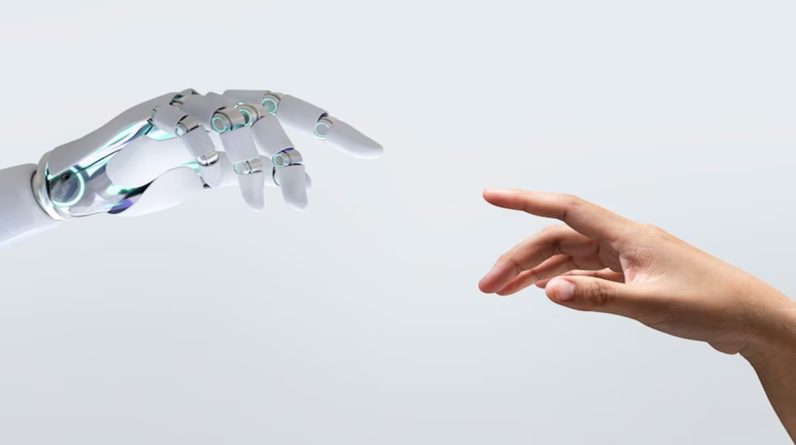As we near the 25 years of the 21st century, we stand at the precipice of a new era. The rise of automation and Artificial Intelligence (AI) has ignited a firestorm of debate, with many fearing an age of widespread job displacement. The advent of Artificial Intelligence (AI) and automation has sparked anticipation and apprehension in equal measure.
While AI platforms and automation tools have been around for some time, their rapid growth since advent of Generative AI have led to fears of job loss and replacement among the workforces. Yet, as I gaze into the heart of this digital revolution, I see not a harbinger of doom but a beacon of hope. Far from being the job stealers of dystopian lore, automation and AI are poised to become our most powerful collaborators, heralding a new epoch of human-machine teamwork.
Imagine a workplace where automation handles the monotonous, data-driven tasks, much like a well-oiled machine on a factory floor. This shift is not about relegating humans to the sidelines; rather, it’s about elevating our roles. It frees us to focus on what we do best: innovate, strategize, and solve problems with a level of creativity and empathy no algorithm can match. This helps teams to address skill gaps and labor shortages, while creating bandwidth for employees to focus on strategic work. According to a report by McKinsey, AI could add approximately $13 trillion to the global economy by 2030, equating to an additional 1.2% GDP growth per year.

Both humans and AI possess distinct individual capabilities that, when combined, create greater value. The essence of our humanity—our ability to connect, understand, and feel—is irreplaceable in the workforce of tomorrow. While AI can parse through data and identify patterns, it cannot replicate the human touch that forges strong relationships, nurtures teamwork, and guides ethical decision-making. This leads to landscape of work being transformed. For example:
Healthcare Professionals: Generative AI could assist healthcare workers by analyzing patient data to provide personalized care plans, thus enhancing the efficiency and accuracy of healthcare services.
Tech Workers: In the tech industry, generative AI can automate coding tasks, design products, and contribute to digital transformations across various sectors.

Customer Service: AI-powered chatbots can handle customer inquiries, shifting the focus to more complex problem-solving roles for the human customer service representatives.
The International Monetary Fund’s Gen-AI: Artificial Intelligence and the Future of Work report says, “advanced economies will experience the benefits and pitfalls of AI sooner than emerging market and developing economies, largely due to their employment structure focused on cognitive-intensive roles. To fully harness the benefits of this AI-Human partnership, we must ensure that no one is left behind. Thus, lifelong learning is no longer a luxury; it is a necessity. Reskilling and upskilling are the keys to unlocking the potential within each of us, enabling us to adapt to new roles and technologies. Upskilling ensures employees stay up to date with additional training to enhance their existing skills, while reskilling involves training employees to learn entirely new skillsets. Some of the skills that will be relevant are:
Prompting Skills: Vital for utilizing AI to increase efficiency and innovation. Includes composing prompts that generate high-quality outputs and comprehending cultural nuances.

Verification Skills: Essential for confirming the precision and impartiality of AI-created content. Encompasses the capability to assess and improve AI outputs.
Adaptability: A crucial skill for keeping pace with evolving technology and job responsibilities. It entails being receptive, versatile, and eager to acquire new abilities. In conclusion, I believe that by democratizing access to the tools and knowledge that help in acquiring these skills, we can build a workforce that is inclusive, diverse, and equipped for the future. In this new dawn, it is the balance between the human spirit and technological prowess that will define our journey. It is a balance that will enable us to achieve more together than we ever could apart, to explore new frontiers in work and society, and to ensure that as the world becomes more automated, it also becomes more human.

Archana Joshi
Archana Joshi is Associate Vice President – Strategy at LTIMindtree.





